
The Post Secondary Transition Conversation
We talk about the ins and outs (and everything in between) of the secondary transition process for families of students with disabilities! Hosts Meghan (Smallwood) and Patrick (Cadigan) serve as supportive guides, leading families step-by-step up each rung of the transition ladder.
Also check out our parent website: https://www.postsecondarytransition.com
The Post Secondary Transition Conversation
076. Transportation/Travel Training: Wheels in Motion
Hosts Meghan (Smallwood) and Patrick (Cadigan) work to broadly discuss transportation and travel training for students with disabilities, while recognizing its a tricky topic due to regional differences. They highlight the challenges families face in getting students to jobs and community activities, they explore school-provided travel training, public transportation options, and the importance of etiquette and safety on buses. They mention resources like the Regional Transportation Authority (RTA) card and the potential roles of DD and VR agencies in providing transportation services. All this and more, so join the conversation!
Episode Keywords:
transportation, travel training, public school transition, community access, public transportation, travel etiquette, RTA card, DD agencies, VR agencies, driving assessment, adaptive driving, Eric's ID law, LISS funding, handicap parking, MVA accommodations
Links:
Travel Training (Link)
Maryland (specific) Links/Supports:
Regional Transportation Agency of Central Maryland (site)
Rapid Ride (site)
Developmental Disabilities Administration (DDA) Transportation Services Information (site)
Resources for Accommodations at the MVA
(Link 1)
(Link 2)
Eric’s ID Law (article)
To download a copy of a transcript for this episode or any of our previous conversations, click here.
Also visit our Podcast webpage to find links to all of our other discussions; go to www.p2transition.com.
Additional information about post-secondary transition can be found at our website.
The Post-Secondary Transition Podcast Facebook page.
Visit our YouTube Channel to find additional video resources.
Intro/Outro music by AudioCoffee from Pixabay.
Transition music by Joseph McDade from Transistor.
Welcome. This is the Post Secondary Transition podcast, where we have conversations around the ins and outs and everything in between of the transition process for families of students with disabilities. I'm one of the hosts. My name is Patrick Cadigan, and I am a public school transition coordinator. As always, I have a co host, and who would that be?
Meghan Smallwood:I am Meghan Smallwood, and I am also a public school transition coordinator.
Patrick Cadigan:All right, so here we are. We are back once again, and this time we wanted to drill down, and we wanted to talk about something, an issue that comes up all of the time, but is a little tricky to talk about, and that is transportation and travel training, and in some of our previous discussions with some of our guests, transportation has come up quite a bit, and so we definitely know that it's one of those hot topics because it it causes issues and limitations for our crew as They attempt to enter that that post secondary world and be as independent as possible. Now we've had students who have successfully applied and been offered a job, but they've struggled to figure out how to get there. In fact, it is one of the things that I specifically am going through right now with one of my one of my students and and it, it can be very tricky. And parents, they are frustrated to get access to the community without constantly having to drive them. And so the big question is, is, what are the options that they have now? This is a tricky conversation to have, because so many areas are so very different. So obviously, the conversation that we're about to have is going to be area specific to us. However. We're hoping that just by having the conversation that families who are going through this will start to kind of know the questions to ask, and we will be sharing out some resources. But I mean, again, they are probably going to be pretty specific to our area. We did want to have a general conversation about transportation and travel training. So even trying to talk about this, Meghan, even just the introduction is giving me is making me tense.
Meghan Smallwood:Oh, I know it. And unfortunately, in our area, there's not many options, and that's what we always hear, like we have these great opportunities, but how do we get there? And like Patrick said, you know, we know it's different, depending on where you live, but hopefully this can trigger some thoughts and conversations about what options there could be, or help you to explore what the possibility could look like. So we're going to just chat a little bit about what can be accessed. And it is a collection of ideas, and we know it kind of crosses the range of all our students. So yeah, we'll just, we'll just dive right in.
Patrick Cadigan:One of the first questions that I think that where we should open this up is, do school systems provide travel training?
Meghan Smallwood:Yeah, again, that's kind of like specific to where you live, but I know in our county, that is something that we we've tried to do every year, and we're trying to do it on a greater scale. And I know some of the organizations, the state funded organizations in our area have done it in the past, and with budget cuts and funding and whatnot, it's kind of lessened, but I think they're trying to get back to it anyway. From a school point of view, we definitely work on doing it. We will have people from our transit come in to discuss the benefits of what public transportation can be for them. You know, we share with them because, of course, some of our students are like, I'll just call an Uber, or I'll just call Lyft. Well, this is a lot less expensive than driving or taking one of those, so it's a great option. You can get to a lot of the places you'd like, in the community, or to your job. You know, you can visit people. It's good for the environment. It helps promote your independence. And now, with the way we've gone with technology, it's easier because there's an app in our area that you can track it in real time. You know, you know, if there's anything happening with the bus, you can actually, like, find it very easy in the area, and when you get on the bus, like, we go over all the safety things for our students, the the etiquette to know while you're on the bus. And some of our work programs, too, within the school system, will practice this on a daily basis with our students.
Patrick Cadigan:And if we were to throw out a tip for families who were working towards this like, let's say that a family does not know if their school system provides travel training. Who? Who could you Who do you think it would be a good idea to reach out to?
Meghan Smallwood:Well I know for us, our transition specialists in the schools are involved with it, as well as our. Teachers who participate in the work program. So they would be a good starting point, you know, to talk about whether it's happening in school, and if they were interested in pursuing it outside of school, they would be able to give the contact information for the people in our area that are in charge of the RTA.
Patrick Cadigan:One other question that comes to mind for me is protocol. You're out in the community, you are out in public. Do you think that there are rules for riding a bus? And if so, what would they be?
Meghan Smallwood:Yeah and that's something like I said, our work program, and when we do travel training, we really go over the etiquette with our students, like we want them to be ready when they get on the bus, because we know the hustle and bustle and they're not the only ones taking the bus, so they have to, you know, move along quickly. They have to have their ID ready to show when they board and sit, and they need to know that they have to have headphones in when they're listening to music. They have to stay seated. They can't be eating or drinking or cursing or whatever it may be on the bus. So those soft skills, just to know how to act on a bus, or one of the things that we go over and that they'll practice in some of these work programs as well. The other thing we help them with is, in our area, students can get a free RTA card to use. So that's something that we really push so that they have the access and the, you know, the motivation. Okay, I've got this card. Maybe my friends and I can go to the mall and practice it this weekend. So we really want them to use it and follow through, you know, so it's in all aspects of their life.
Patrick Cadigan:But and now that I'm thinking about it, though that is not school specific, though that is like, which is to say that this is not transportation that the school system provides this, this, this card to use. This is actually outside of that department of transportation, correct?
Meghan Smallwood:Yeah. So, this is something the school can help the student get, but they can carry on after they leave us, or over the summer, on the weekends. And, you know, we go over with them how important it is to keep a hold of it, because I've had students who will go to travel training again. And I'm like, Okay, make sure you bring your RTA card back. And they're like, I don't know where it went. So again, one of those things, you know, we have to keep track of our important belongings, otherwise we miss out.
Patrick Cadigan:I saw something that there was a program that was launched recently Rapid Ride.
Meghan Smallwood:What was, yeah, like you mentioned, this isn't, you know, part of our school system, but from the Department of Transportation, they just are launching a new micro transit service in a certain area of our county. And I think we can put that in the notes like the link so that they can look for more information, but it's free to our students, and they'll give them more access to different places and services, especially for healthcare. They can book these rides on the phone or on their app, and it'll help them just give them more access to different things in the community.
Patrick Cadigan:Know that you can always go to our show notes and anything that we talk about, we're going to have links to that. In fact, some of the conversations that we have been having lately have been getting so local, specific to us, that we actually then created like, a secondary set of links where we'll have, like general links, links to the things that we talk about that will help people in general. But then sometimes we have to drill down even further, and we have to call out even some of the Maryland specific links, because, of course, Maryland is where we are. So All right, now, one other question that comes up, how, and I'm trying to think of how to segue into this. We have had many conversations around DDA agencies, specifically in our area, we have DDA, the Department of Developmental Disabilities, associate administration, Say that five times in a row, really fast. How can they be weaved into this conversation?
Meghan Smallwood:Yeah, and that's something like, I know when we've talked about DDA in the past, we've looked at like the the meaningful day and the day programs and the community development services, but transportation is another area that it really can help with, and there are different DDA providers that will provide the transportation services, if you dive into it and look, I mean, that might be one thing that they do, you know, smaller agency, but it can be written into that person centered plan for transportation. And we'll include the link because it was just lengthy criteria and eligibility and different things, but it can cover and one of the biggest things I've seen is mileage reimbursement. So if they are, let's say, doing self directed and they have a staff person driving the individual to places, they can get mileage reimbursement. So that would fall under transportation. It can cover ride shares. You know, ooh. Or it can cover public transportation if you didn't have that free RTA card. It can also pre cover travel training if you were still working towards learning how to do this independently. So there's a whole slew of different things that it can be used for. It's just a matter of letting your coordinator know that transportation is an area that is a need and that you want to explore to include in the plan.
Patrick Cadigan:Okay, so then paralleling that conversation, because we've thrown in a DDA agency, let's talk about another agency that so many of our families are familiar with working with so many of our families are familiar to work with. There we go, a VR agency. Now in our area, this is DORS, the...
Meghan Smallwood:Division of Rehabilitation Services.
Patrick Cadigan:There's so many...
Meghan Smallwood:There's another one.
Patrick Cadigan:There's so many acronyms that we're dealing with. It's like...
Meghan Smallwood:Yep.
Patrick Cadigan:...okay, is this D department? Is a division, and what's this? Oh, I have to it's like, if I don't have it directly in front of me, it's like, I forget it. So can DORS also, do they or any VR agency, can they also...
Meghan Smallwood:Yeah.
Patrick Cadigan:...be part of this conversation?
Meghan Smallwood:Yes, but I will preface it by saying they the vision or the goal behind DORS is for employment. So if a family or student comes and says, I want to learn how to get my driver's license. That is not going to be their sole basis or goal for the student has to tie back to employment. So if the student was to say, I want to get my license so I can get to work, or, you know, I want to take Driver's Ed so that I can, you know, make my way out in the community, it has to tie back. So DORS, if you have an open vocational rehabilitation or VR case, will look at doing driving assessment if they feel that is what's needed, and they will have the student evaluated to determine their ability to drive it like if they would even be eligible to go and get their driver's license. So that is one thing they would do, because I've had students who are interested but weren't sure if it would be something that that can be pursued. So then Driver's Ed is another one that they could offer, and they do have different tracks. And again, I think we'll tie it back to the website, because they'll give you more lengthy information again. Your DORS counselor can also give you more insight into this, because they are the gatekeepers for all this information, but they could potentially offer some support for the DORS consumers with autism or for other specific disabilities, like, you know, deaf or hard of hearing with some interpreting services, so that they would offer a driver's ed course, a curriculum which is similar to what the driving schools use, but this is also with some additional sessions, and also just the the instructor will give additional support while they're going through The materials to understand it and possibly repeat the quizzes and tests as necessary.
Patrick Cadigan:This is a conversation that came up recently. I feel like it's come up more than a few times, but one of the things that I don't think that I really appreciated and specific to driver being a driver, is the focus the moment to moment, decisions that you have to make as a driver, the just not knowing what another driver on the road is going to do. It just made me realize how complex that some like, just there are certain activities that we do that we kind of take for granted. But when, when you're thinking about it in terms of the population that we tend to work with, or just in general, or having to explain it to people, it's like, oh, this is actually way more complicated than that. I was given a credit for.
Meghan Smallwood:Yeah and I think that's a good point. I think that's why the driving assessment can be very helpful, because I think of like my sister back when they thought about the possibility of her driving, but they didn't know reaction time, you know, if she would be able to handle those split second decisions while you're driving. And so she did a driving assessment in New York and did not pass, so it was not a path that they pursued. But that's a very good point, because you're right. It's not just you that you have to worry about. It's the other drivers and reacting to those decisions. So that's definitely something that's taken into consideration before going down that route. Again, like adaptive driving too, something else that can be covered. Because I know we have some of our students who are in wheelchair. Are in wheelchairs or may have some other physical disabilities, and adaptive equipment may be incorporated. So that's something that training can be provided on, and also support in getting that adapted equipment figured out and situated that can be offered or considered.
Patrick Cadigan:And there's. A couple of resources that we have that are specific to our area. So again, we will include those in the show notes.
Meghan Smallwood:Yeah, and you know, in terms of taking the test of the actual MVA, there are accommodations that can be provided. If you are to bring your copy of the IEP along, you might you're going to have to call the MVA office here to ask about what is allowed, not allowed, and set up a time for it. But I know from other students in the past, like they've they could have the questions read to them. They could have a little extra time. There's just different things that could be implemented. So don't rule it out, especially if your student is nervous about having to meet that certain, like, you know, criteria, and they're worried that they're going to need something extra,
Patrick Cadigan:Yeah, and my advice to families is, do not be shy about reaching out to your local, your local, like, vehicle place.
Meghan Smallwood:Yeah, I know, it's not always called the MVA.
Patrick Cadigan:No.
Meghan Smallwood:In New York, it was the DMV.
Patrick Cadigan:Yeah, yeah, so, but don't, don't hesitate, because you You never know what they might be able to provide. There was a student that I was working with quite recently that, again, this was a conversation that I was having with the families, and this particular family had an advocate, and the advocate had brought up that they had done some research, and there were some things that were available for to assist local drivers. And I was like, writing this down furiously as they were talking about it. And I was like, wow, that's helpful, because I can throw that out to other families as well.
Meghan Smallwood:Yeah. And also, to mention, you know, at school specific or area specific, but we've had Transition Specialists and teachers bring in people from the MBA so that the students can actually take the written test in school, you know, and you tackle a whole group of students at one time, and that's when accommodations also were put in place. So there are different ways of doing it.
Patrick Cadigan:Very cool. And one thing now, before we hit the record button, you you were talking about something, I want you to make sure to throw it out you. And now, again, this is specific to Maryland, but you had mentioned the Eric's ID law. Do you want to talk about what that is?
Meghan Smallwood:Yeah, and that, I think, was just released this week, and the law won't be implemented till October, 1 of this year, but it is for hidden disabilities to be marked on the driver's license and state IDs as well, just to make more awareness with law enforcement and emergency personnel for safety and just understanding During interactions with them. I know training is done with those different departments and different places, but some of the key aspects for this new law is that those who may have a non apparent disability like autism or deafness or even ADHD, they can indicate on there to make others aware. And it's just a simple little butterfly symbol to be placed on the ID with the words hidden disability to let them know that disability is not immediately obvious. Because I think that's a big thing that happens in our community. You know, if you don't see that apparent disability, you just assume they're not listening, or they don't understand right away. So it's just aimed for those individuals with non apparent disabilities to be treated with more understanding and respect, especially during those high stress interactions with authorities.
Patrick Cadigan:I want to segue a little bit because I know that this is definitely one of those conversations where you can easily go all over the place, but in past conversations that we have had one of the things that we have covered is our, not our, but we have covered lists, lists, yeah, list funding. Do you want to do a quick recap of what LISS is and then how, how it pertains to our discussion of transportation and travel training, yeah?
Meghan Smallwood:And LISS stands for Low Intensity Support Services, and it's connected, but it's separate from DDA. So basically, you don't have to have a DDA application on file, although, you know, we are always going to promote that for our area, like because you're going to need that long term. But if your child is below 14, or you just haven't gotten around to it, you can apply for the list funding separate from that, and it's two lotteries a year, one in the spring, one in the fall, that the money is awarded, and it's up to $2,000 it's a simple application that we can include the link if you're interested in doing it. I know families that do it regularly and are often awarded it. But one thing I didn't realize is, as I was going through it, transportation services can be included for list funding. So that would mean travel services to assist this applicant to access and navigate their community. It can't be paid for to the parent or the legally fine. Financially responsible person for the applicant, but it can be used for other purposes, such as if you were to hire a person to provide transportation for them, or if they were going to use the Metro access depending on where they live, or Ubers or taxi vouchers or whatever, and they're not receiving DDA funding yet, or anything to do with DORS. So it's just another option to consider when I thought it was just cool to mention. And then the other thing like, and I know, like you said, this is just a collection of different things that fall under transportation, but I just wanted to throw out there too, for those who might not have thought about it, approaching the MVA about a handicap parking. You know, I think a lot of times we think of the elderly when it comes to handicap or someone in a wheelchair, but I would suggest going on to the MVA and just looking at what all the requirements or criteria is for a special parking placard or registration plate, because I've had families with an individual with a disability that were able to to obtain one, and it just made things easier when they're going out in the community with them. So I won't go into all the nitty gritty about it, but just something to explore if you know going into the community can be a struggle, and it's just another way to make it a little easier. If you have family member or someone who's going to be working with your individual taking them, it would just make thing, you know, one extra tool in the tool belt to make that easier for everybody.
Patrick Cadigan:Very cool. Well, we've, we've covered a lot, um, and again, this is kind of one of those conversations where I feel like we could probably keep going and going and going.
Meghan Smallwood:Yeah, and it's something we can always like come back and revisit, and maybe bring someone from one of our agencies that deals with this to talk a little more specifically about our area and what's offered.
Patrick Cadigan:That would be very cool. Well, good deal. All right then. Well, I think the that is a good place to do a hard stop, and we'll catch up with everybody very soon. You'll find all the links to the information from our conversations in our show notes. We would love for the information from this and all our other discussions to reach as many families as possible, and we need your help to do that. You can find our conversations at www, dot p2 transition.com, like, follow and share out the podcast. Our conversations are posted to all the major platforms, including Apple podcasts, Spotify, YouTube music, and that's just naming a few so please share and share often.
Meghan Smallwood:Please also check out our YouTube channel. Now that we've done some of the leg work for you by curating videos of topics that revolve around transition, we have playlists for guardianship, alternatives to guardianship ABLE accounts, and there's more to come. So please be sure to subscribe there as well. And then finally, check out our website, which is full of information and links to resources around the transition process. So open your web browser of choice and surf to www.postsecondarytransition.com and we thank you so much for the time you spent with us, and look forward to talking again soon.
Podcasts we love
Check out these other fine podcasts recommended by us, not an algorithm.

T21Mom-A Down Syndrome Podcast
T21Mom.com
The Collaborative IEP
Ashley Barlow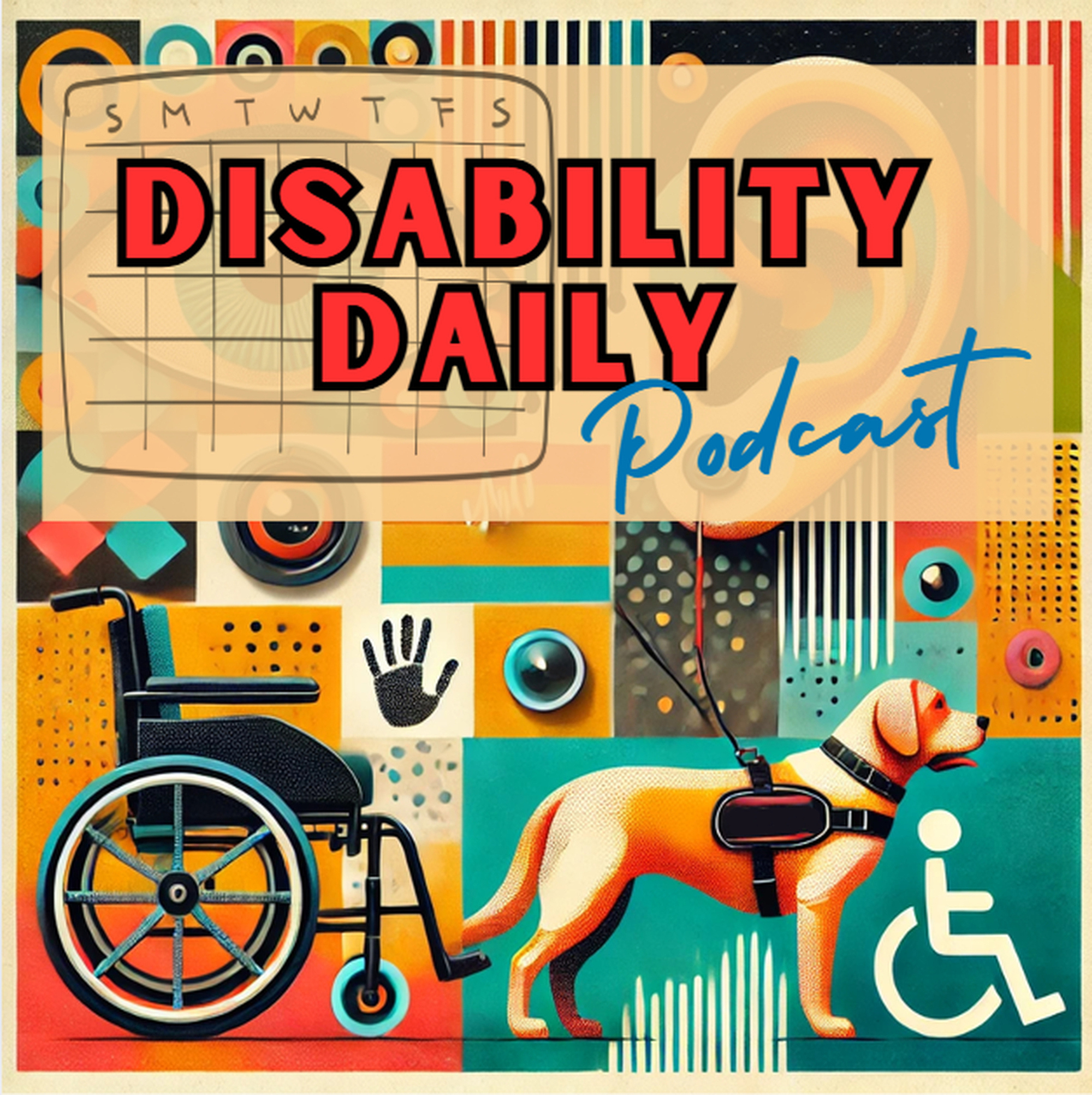
Disability Daily Podcast
Katie Healey, PhD, CPACC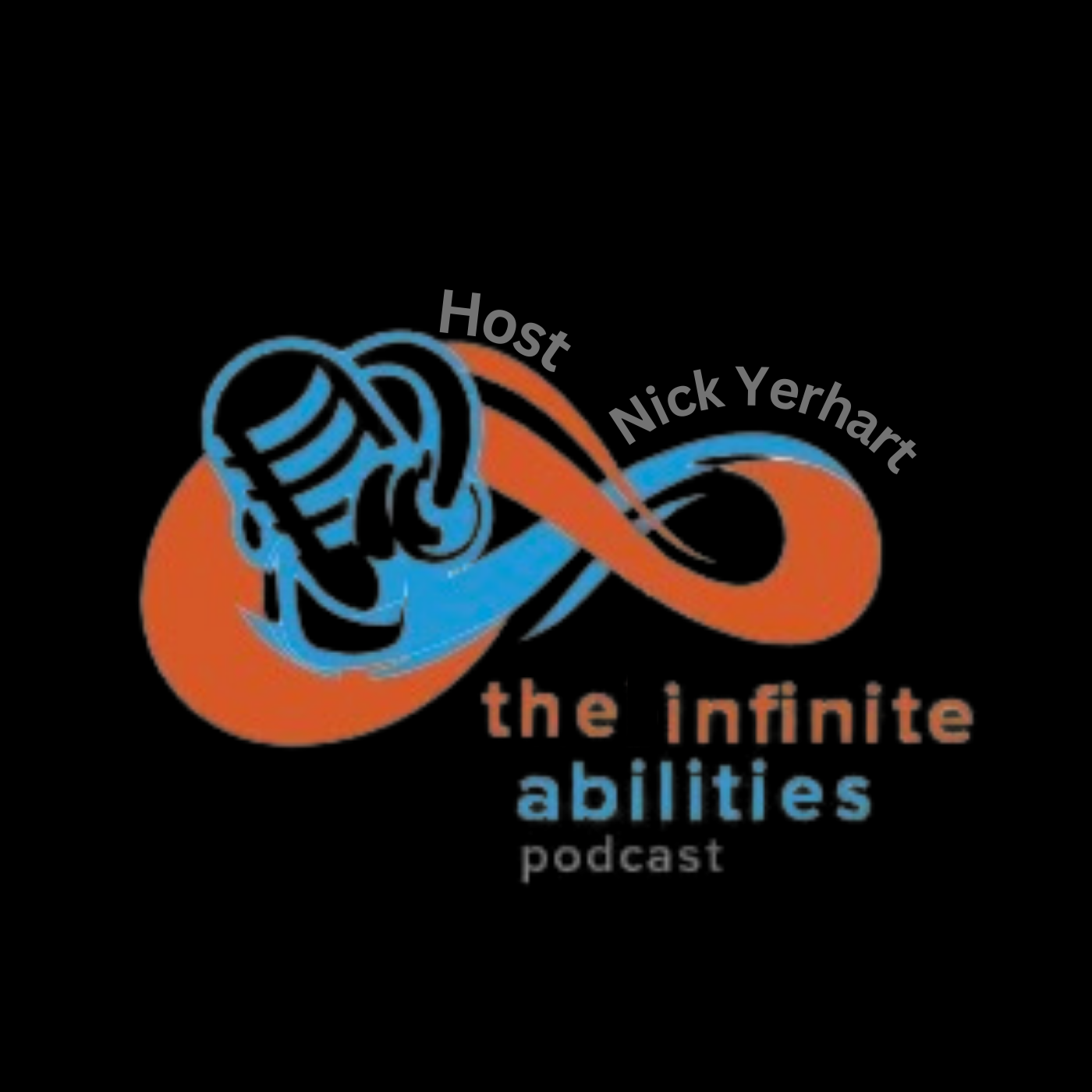
The Infinite Abilities Podcast
Nick Yerhart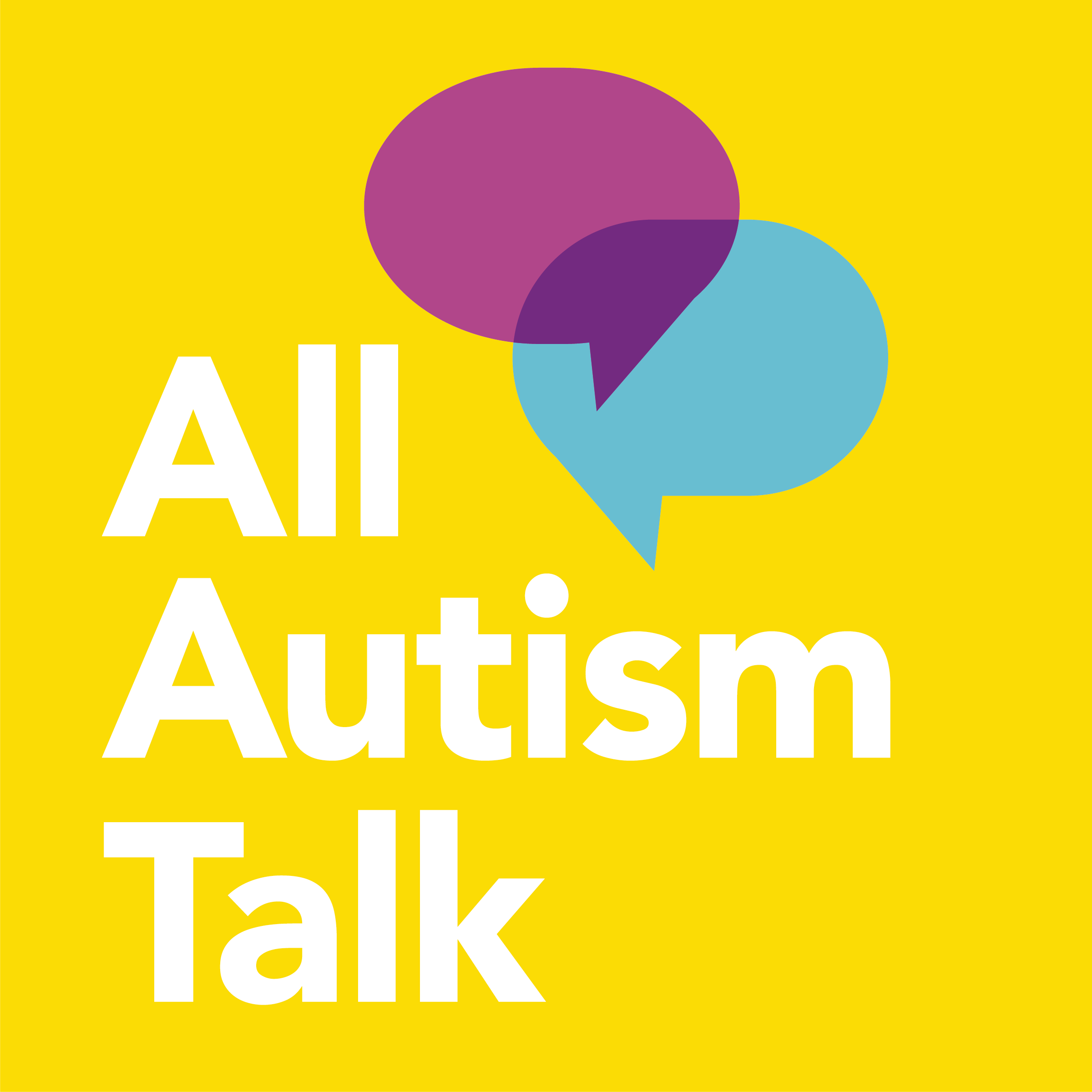
All Autism Talk
All Autism Talk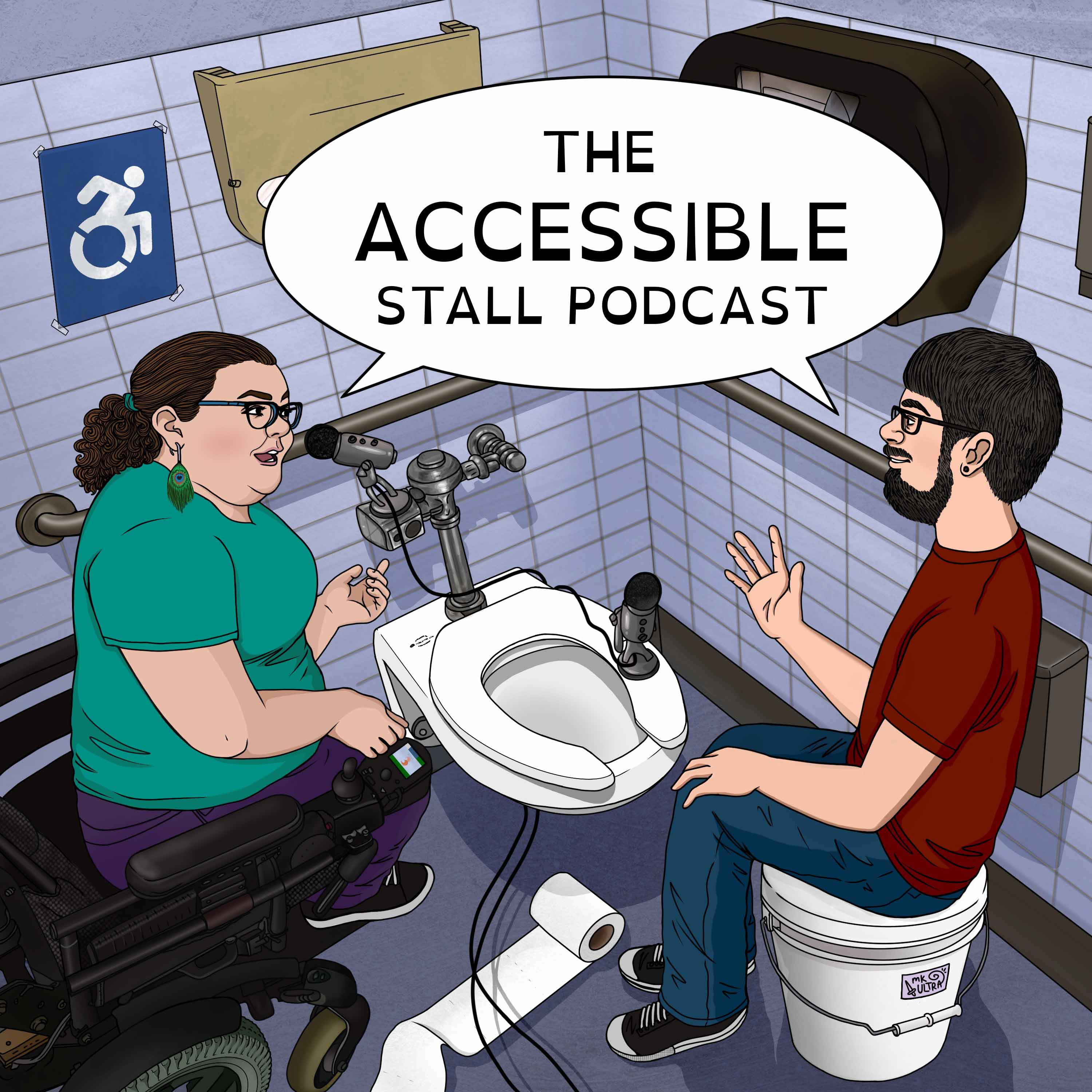
The Accessible Stall
Kyle Khachadurian and Emily Ladau
Disability Deep Dive
Disability Rights Florida
STAY Tuned: Supporting Transition-Age Youth with mental health conditions
STAY Tuned at Transitions to Adulthood Center for Research
Moms Talk Autism Podcast
Shannon Korza, Brittney Crabtree, Tash Dillmon, and Jean Mayer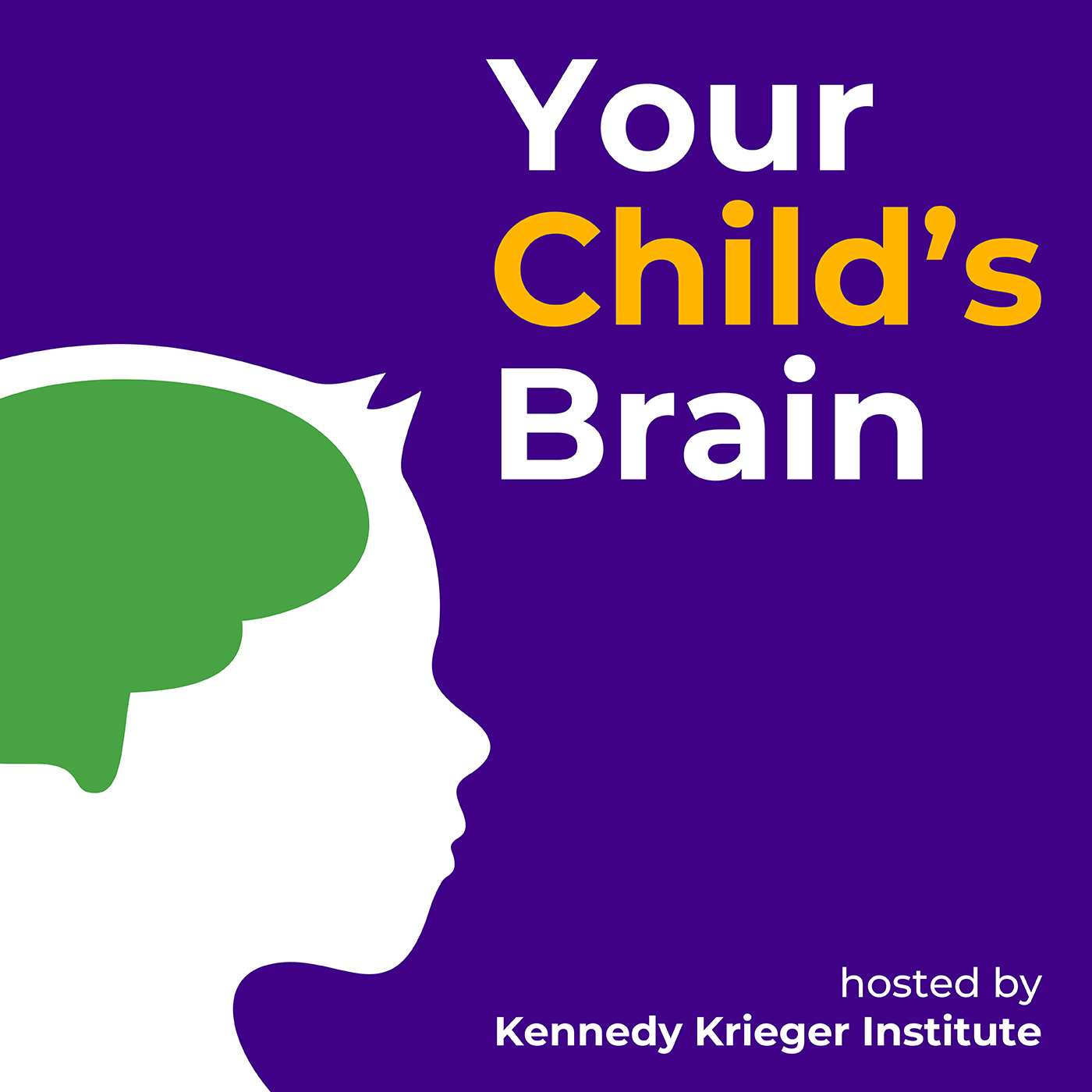
Your Child's Brain
WYPR Baltimore


